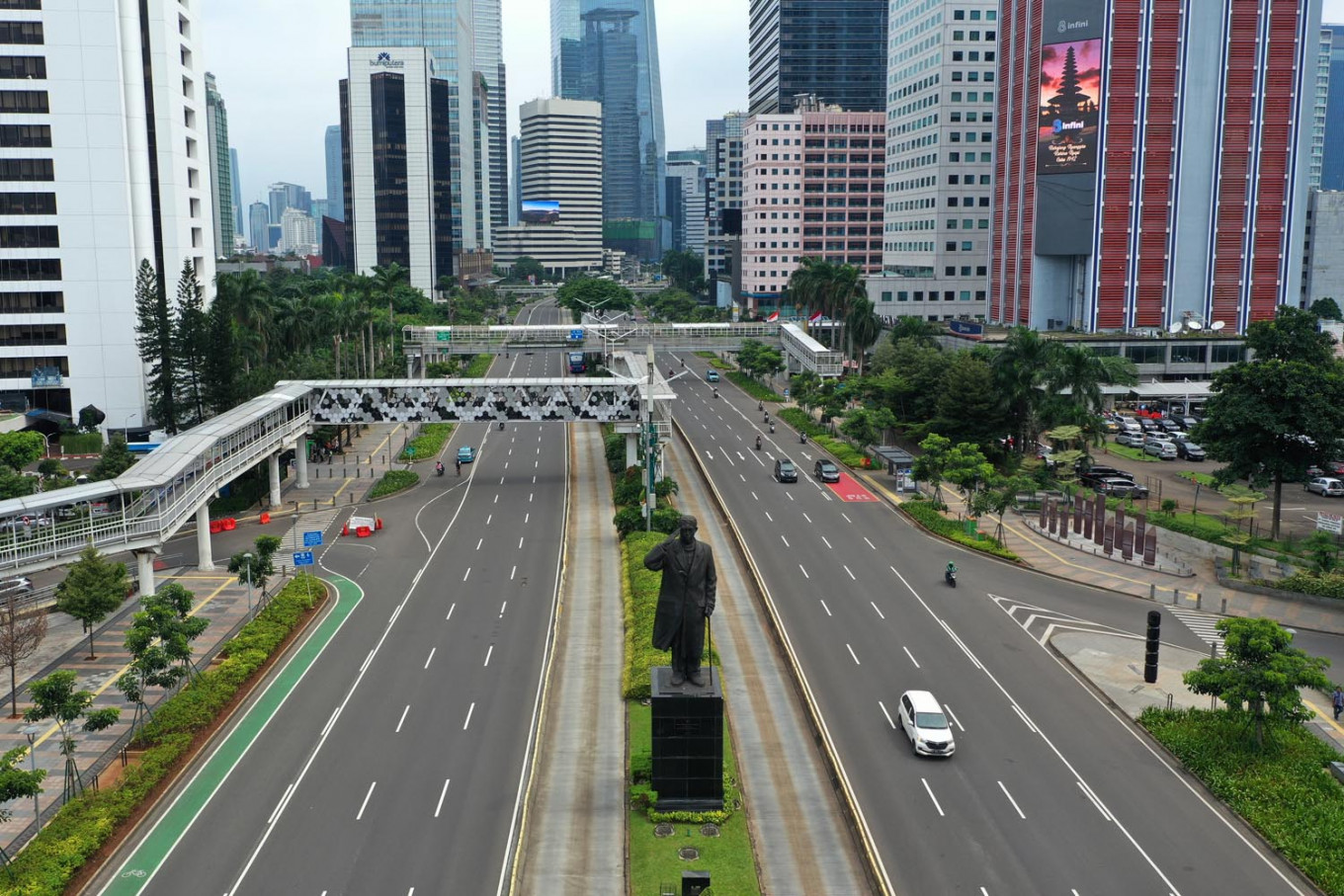Popular Reads
Top Results
Can't find what you're looking for?
View all search resultsPopular Reads
Top Results
Can't find what you're looking for?
View all search resultsJakarta air quality improves as people commute less, rainfall intensifies
The decline in PM2.5 is in line with the trend of people working from home after the Jakarta administration declared last week an emergency situation, prompting some companies to implement a social distancing measure to prevent COVID-19 from spreading further.
Change text size
Gift Premium Articles
to Anyone
T
he Jakarta Environment Agency has recorded improving air quality in the capital city over the past week caused by a significant decline in the number of people commuting across the city, coupled with rising rainfall intensity.
The capital's concentration of PM2.5 – inhalable pollutant particles less than 2.5 micrometers in diameter – declined by around 33 percent to below 40 micrograms per cubic meter (mgc/m3) on Thursday from above 60 mgc/m3 on March 19, according to data released on Thursday by the agency.
Jakarta Environment Agency spokesperson Yogi Ikhwan said the decline was in line with the trend of people working from home after the Jakarta administration declared last week an emergency situation, prompting some companies to implement a social distancing measure to prevent COVID-19 from spreading further.
"The work from home [policy] is reducing mobility, so the source of pollutants is also declining," Yogi told The Jakarta Post on Thursday.
Jakarta joins other cities across the world in encouraging its residents to work from home. The contagious respiratory illness, originating in Wuhan city in Hubei province, China, has infected hundreds in the capital, making it Indonesia's epicenter of the outbreak.
Read also: Jakartans called to work from home during outbreak. Not everyone has the option.
The government reported on Thursday 53 new confirmed cases in the capital city, raising Jakarta's confirmed cases to 515, as announced by the Health Ministry’s disease control and prevention director general Achmad Yurianto. Of the 515 patients, 25 people had recovered and 46 people died.
More and more people are staying at home as best they can to follow the administration's instruction on preventive measures against the disease, as reflected in the emptier-than-usual streets across the city over the past week.
"Generally speaking, Jakarta's streets are vacant. I appreciate all the people who choose to stay at home," Jakarta Governor Anies Baswedan said during a press briefing at City Hall on Thursday.
The capital's recently improved air quality, however, does not only correlate with the declining number of vehicles traveling, but also with rising rainfall intensity as the rainy season reaches its peak, according to Jakarta Environment Agency head Andono Warih.
Read also: Airvisual: Jakarta declared world's most polluted city on Thursday afternoon
"The rain falling in Greater Jakarta is cleaning the atmosphere of pollution," Andono said in a statement released on Wednesday. "The PM2.5 concentration shows a decline when the rainfall intensity is high and the PM2.5 concentration slightly increases on days without rain."
However, Jakarta has seen a worsening trend in air quality over the past several years. It was named the fifth-most-polluted capital in the world and the fifth-most-polluted city in Southeast Asia, according to the 2019 World Air Quality Report released in February by air-quality data provider AirVisual.
The report found that Jakarta's concentration of PM2.5 increased by 66 percent to 49.4 mgc/m3 last year from 29.7 mcg/m3 in 2017. (dfr)










